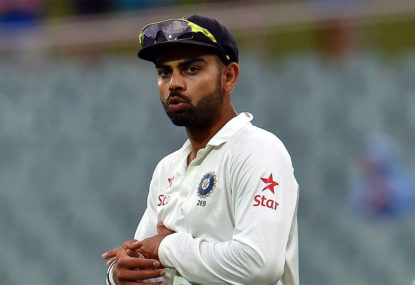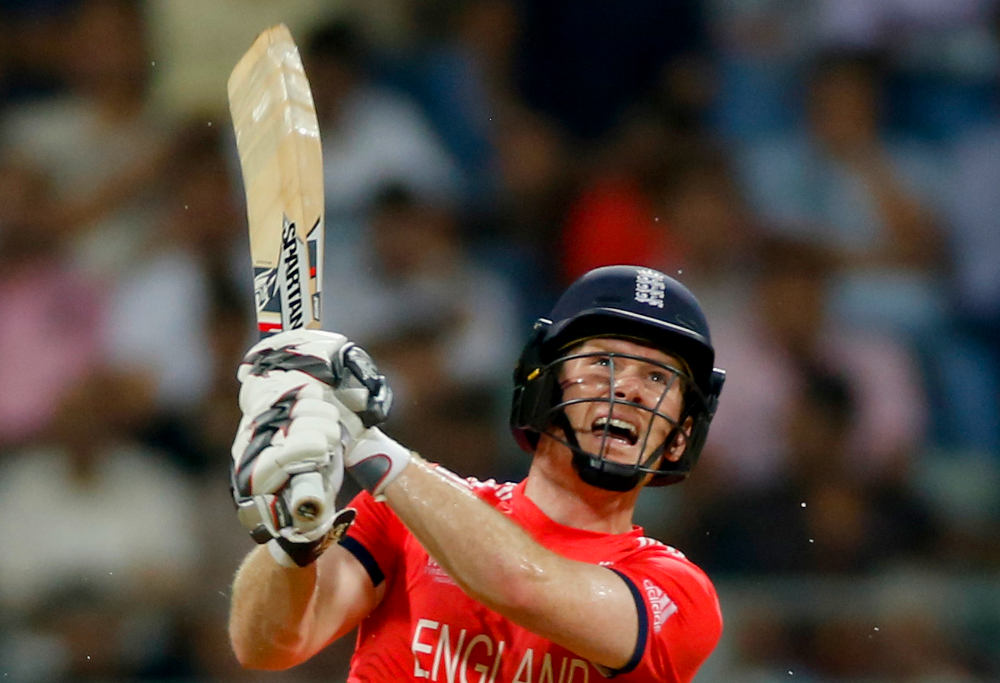World Cup chances up in the air but Smith makes Major call on T20 future, Green dumped despite huge IPL deal
Test great Steve Smith is to play for Washington Freedom in the second season of Major League Cricket as the Australian influence in the…

The ICC announced the rating points for the ODIs.
After running over Australia, 5-0 – England solidified its ranking at the top with 126 rating points while Australia slipped to their lowest ranking of three decades to number six with 100 rating points.
India, however, is in the second position with 122 rating points – nine rating points more than third-ranked South Africa (113 rating points).
England and India’s young guns have led the batting, bowling, and fielding to great heights, but it’s leadership which has made sure the players follow, met standards set regarding fitness and discipline in other areas.
India, for example, have Virat Kohli who leads from the front with discipline in fitness, batting prowess and fielding with aggressive intent.
Perhaps that’s the reason India has made Yo-Yo Test mandatory and set the benchmark of 16.1. It will not matter the amount of runs players score, wickets he takes or for that matter – the reputation of the player.
If you don’t clear Test you don’t make the cut in the squad – it’s as simple as that.
One example of having such discipline in place is with a bowler like Jasprit Bumrah who was able to maintain the sheer pace and run in along with the same intensity in the third Test against South Africa.
Even vice-captain Ajinkya Rahane came in and left his impression within the team in the last Test against Australia at Dharamsala in 2017.
He was aggressive in his way but not as emotive as Virat Kohli.
Even after the Test against Afghanistan, he displayed excellent sportsmanship by calling the opposing team for a photograph.
Rahane led in his way by not wanting to take a leaf out of Virat book and realised both are a different personality.
Even Rohit Sharma has had experience of leading the Indian side.
He has led the IPL franchise team, the Mumbai Indians, and successfully powered them to three IPL trophies.

(AP Photo/Rajanish Kakade)
England is also lucky to have Eoin Morgan who has stamped his authority on the ODI team. They have made it clear how they would approach batting in 50 overs which is entirely different from what they did before the 2015 World Cup.
Jos Buttler, who came in as stand-in skipper, looked comfortable leading his team against Australia at Trent Bridge, leading them to a win.
Similarly, they have Ben Stokes who will be a good leader withstanding his injury issues.
Australia has lacked a leader who could lead the troops.
Tim Paine let the pressure get on to him and wasn’t his own. The dip in his performance through the ODI, where he managed 36 runs across five innings, the lowest ever by an Australian ODI captain in a five-match series.
Also, it’s crucial that selection panel must try to avoid in choosing a new captain is appointing someone who might be weighed down by the extra responsibility, like Alastair Cook, who wasn’t a natural leader and appeared to find the task difficult, having earned the job purely on the basis of runs he scored for the team and given his longevity.
Throughout his tenure, he seemed burdened by not being able to handle the troop and dips in runs he scored from time to time.
Australia, if they plan to look beyond Tim Paine, have a difficult choice to make.
They don’t have a leader who is ready to take over for the next year or so.
Mitch Marsh and Pat Cummins are potential leaders but need to get comfortable with the day-to-day job of looking after themselves first and then the team.
Vice-captaincy will be the right step up for that and an effective way to judge if both are ready for it.